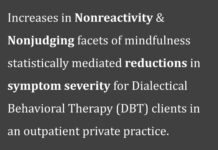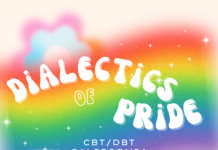[et_pb_section admin_label=”section”] [et_pb_row admin_label=”row”] [et_pb_column type=”4_4″][et_pb_text admin_label=”Text”]
February. A month commonly associated with the taste of chocolate, an anticipated romantic date, receiving your favorite flowers, and the scent of candles. Others likely associate this month with texts left unread, phone calls ignored, an abundance of used tissues, and a surge in the deletion, creating, and curating of dating profiles. February is a month in the year that many people come into contact with emotions and experiences such as romance, love, and lust. At the same time, others also come into contact with emotions such as loneliness, grief, and depression. Why such a contrast? Emotions diversify as a result of our thoughts, perspectives, interpretations, and meaning we assign to this month. What is primarily highlighted here is the imbalance of love associated with others and the love associated with ourselves. So, the question that prevails is how do we redefine the month of love to become the month of love and self-compassion?
Dr. Kristin Neff’s work on self-compassion emphasizes that the way we have self-compassion is similar to how we are compassionate towards others. In the midst of adversity, short-comings, suffering, and failure, self-compassion means being understanding, forgiving, and kind to yourself. People are often their own worst critics, which makes the practice of instilling self-compassion aspirational. Everyone can always work on their self-compassion by asking yourself, “In this moment, how can I be more kind, caring, and nurture myself?” Some of the best ways to practice self-compassion are to refrain from judgment and negative self-talk. We are all fallible, and when we judge and criticize ourselves, we may be unintentionally increasing suffering. Instead, offering ourselves kindness, understanding, and comfort can help alleviate the suffering. Mistakes and suffering are inevitable in life and coming to this realization is also important. Dr. Kristin Neff states that suffering and feeling inadequate is part of the shared human experience. We grow through suffering by enduring and overcoming it, and working to fight or avoid it makes the suffering worse. Engagement in the human experience means being willing to experience all emotions and accept them as they come and go. Practicing mindfulness and self-validation can be useful to increase self-compassion by noticing ineffective thoughts and sitting with uncomfortable feelings. As a result, we are experiencing and accepting our emotions rather than repressing them and complementing it with self-compassion, love, and understanding for ourselves.
Self-compassion is not always an easy task, but it is one of the best innate resources we possess to provide some level of relief amongst inevitable pain. Although we can’t control love that we receive from others, we have the ability to control the breadth of our self-love. Beyond this month, being intentional in practicing our self-compassion can demonstrate the invaluable effect on our shared human experience. We all deserve to feel a little more unconditional love in this challenging and beautiful world.
[/et_pb_text][/et_pb_column] [/et_pb_row] [/et_pb_section]



